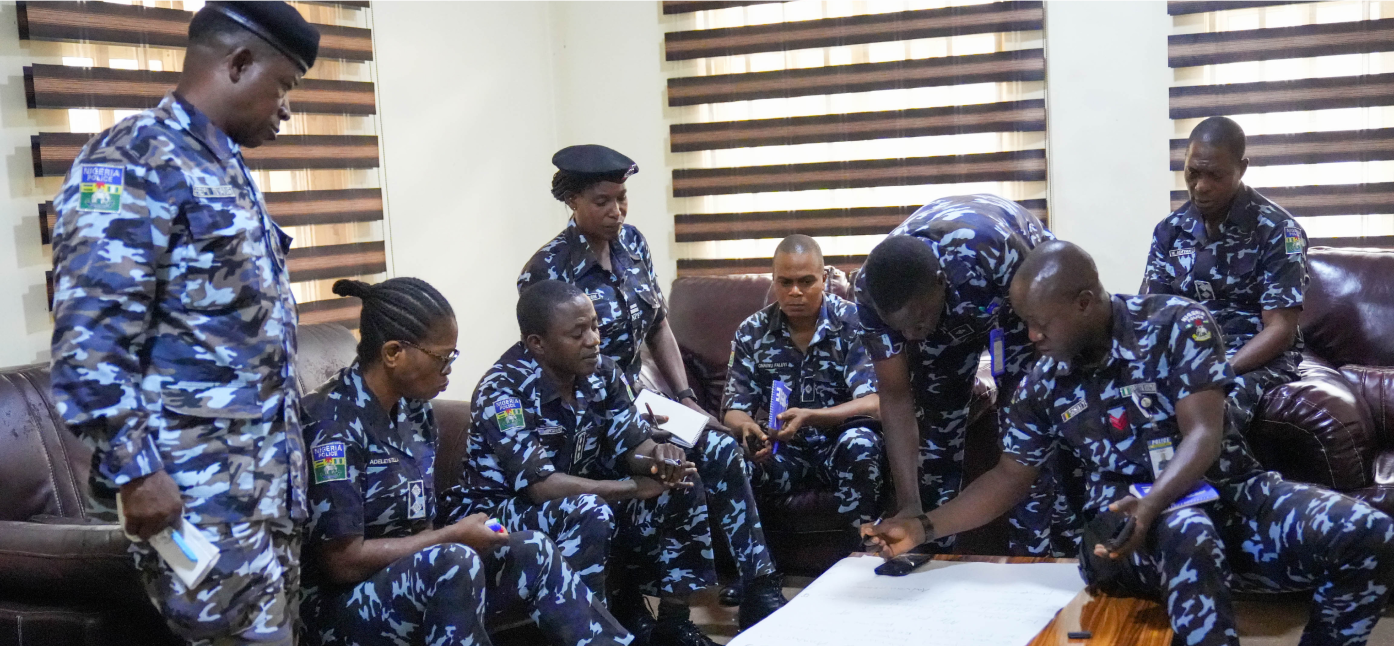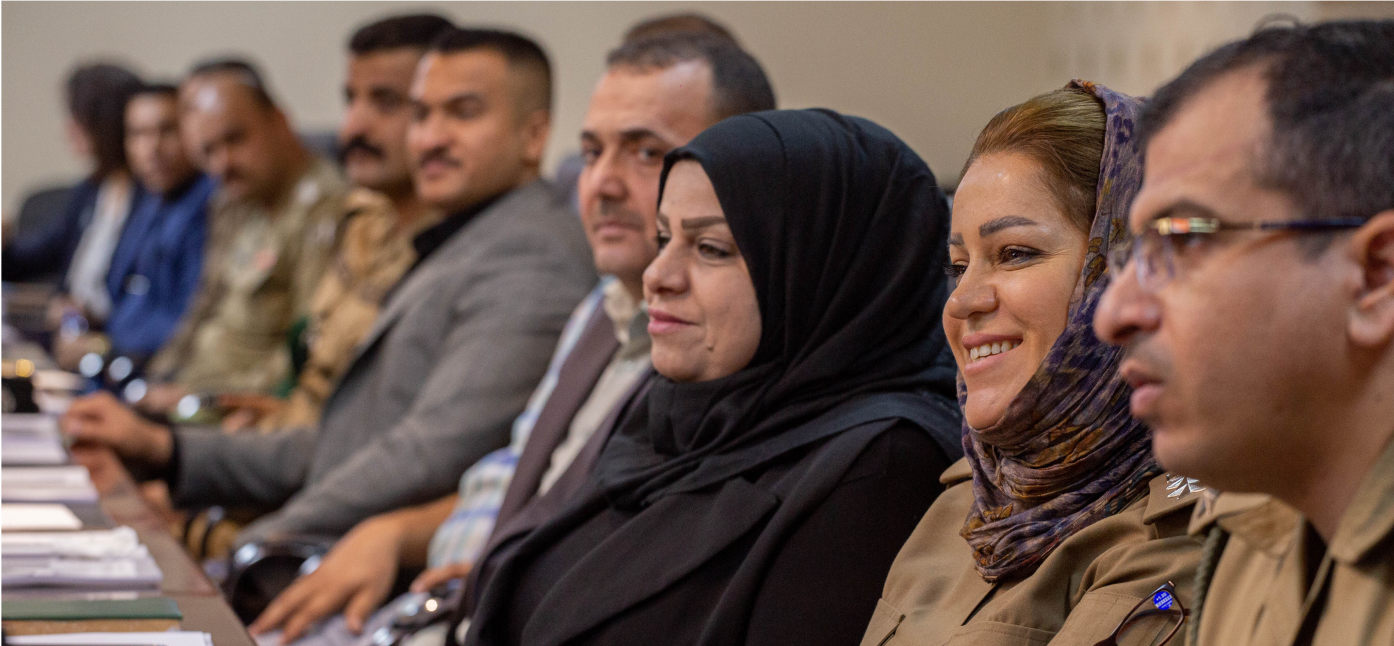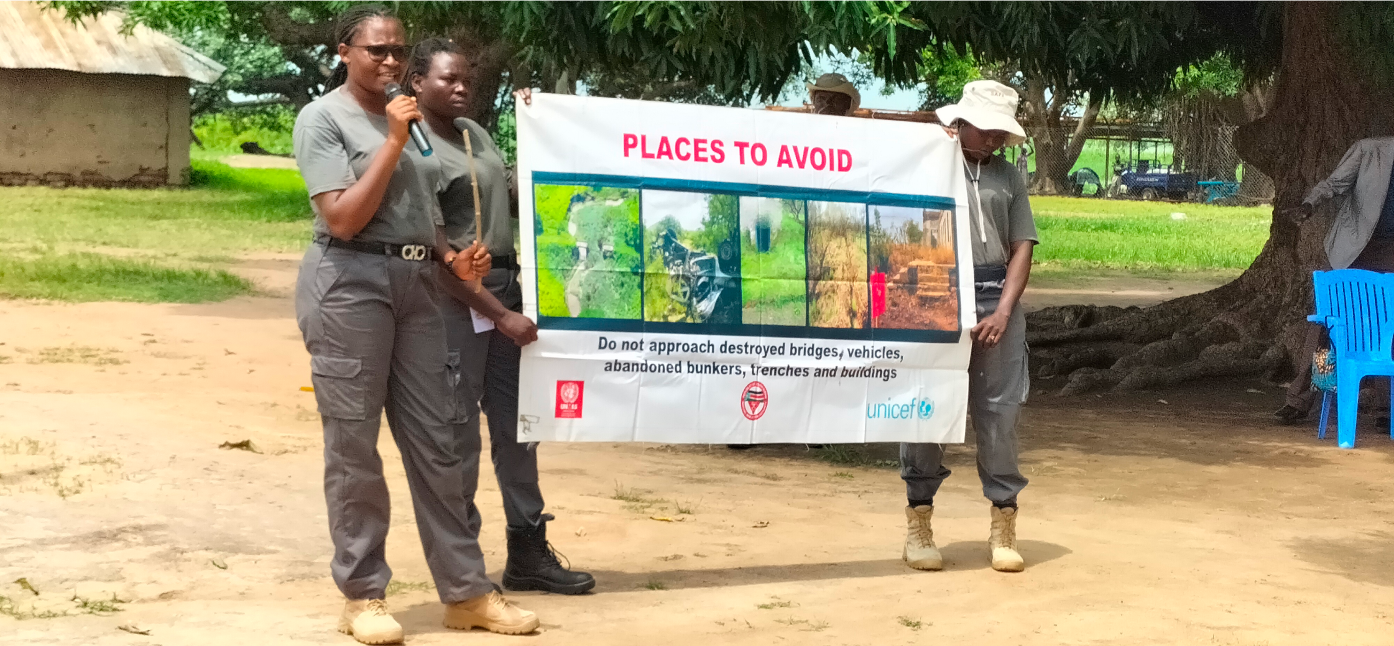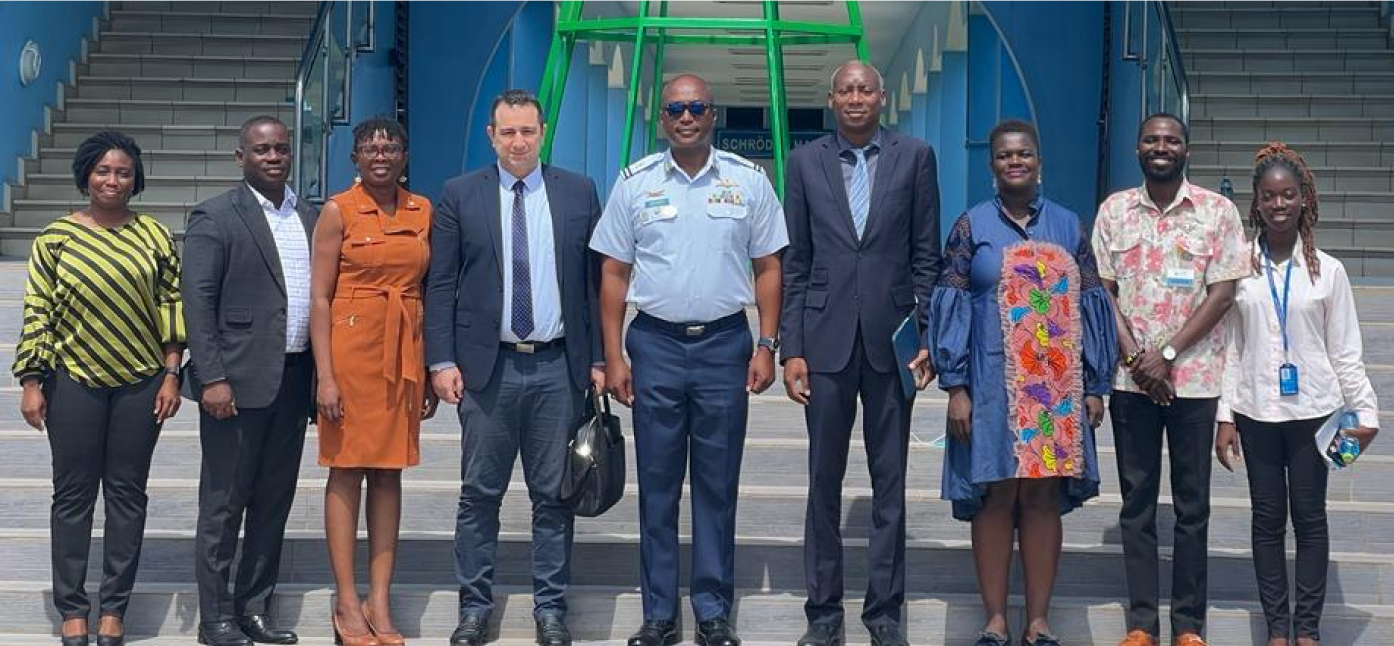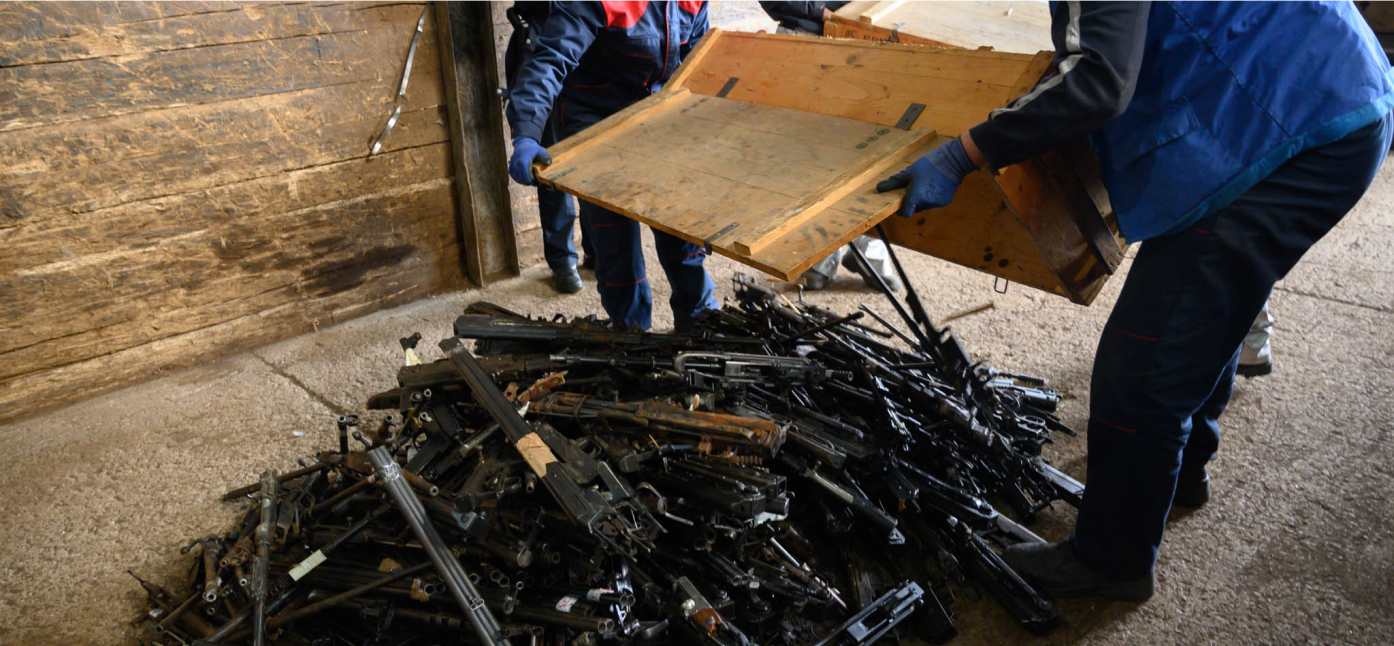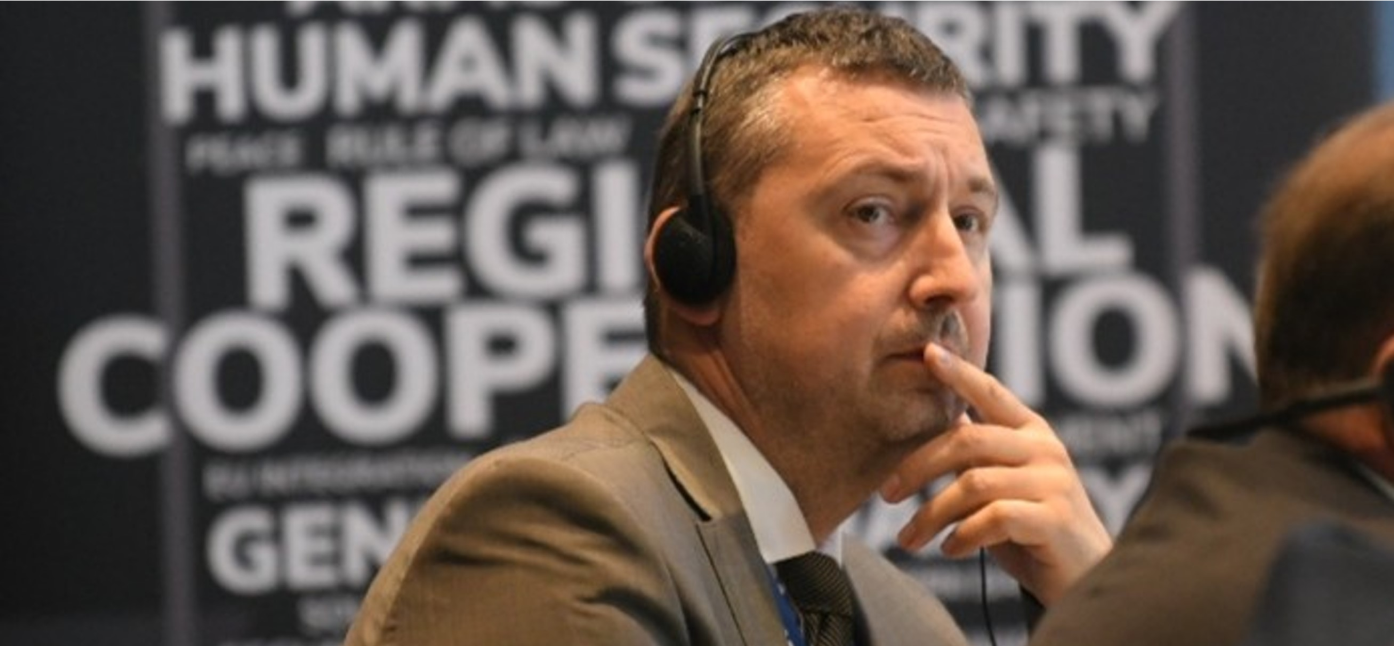OVERVIEW
In 2023, many regions in the world grappled with crises and insecurity that undermined development efforts. Open conflicts and weapon proliferation perpetuated poverty, marginalization and social unrest, particularly in fragile states. Gender-based and sexual violence, as well as human trafficking, were widespread in conflict zones, disproportionately affecting women and girls. The economic toll of violence hit a record $17.5 trillion in 2023, about 13 percent of global GDP 1 , with developing nations bearing the brunt. In many places, but particularly in Sahel, environmental degradation and resource scarcity fueled conflicts over land and water, left people without access to food and forced them out of homes. Cybersecurity also emerged as a critical concern calling for collective action. To improve community security, UNDP engaged in policy development to ensure deep understanding of people-centred approach to security, and supported justice and security initiatives in 37 countries.
POLICY DEVELOPMENT: PROMOTING PEOPLE-CENTRED SECURITY
Determined to transform its programmatic support to security sector in line with a people-centered approach, UNDP continued its partnership with Folke-Bernadotte Academy (FBA) to build on the joint research of the key concepts of people-centred security (PCS). UNDP and FBA delved deeper into the analysis to explore a major challenge in PCS implementation: effectively engaging non-state and hybrid governance structures in security programming
A paper was developed to examine lessons for UNDP and international partners in navigating hybrid security governance settings from a people-centred perspective. This research is based on literature review, as well as on the insights from the interviews with UNDP staff in Colombia, Pakistan and Yemen. The paper will be presented in 2024.
UNDP is also developing a new vision for its people-centred approach to justice and security programming. A policy paper is being finalized, exploring UNDP’s experience in over 150 countries. It argues that people-centred approach to justice and security has transformative potential by recognizing the interlinkages among justice and security, human rights protection, promotion of the rule of law and social contract.
As a thought leader in the area of community security, UNDP participated in key events and discussions on policy development, focusing on implementing recommendations from the report of the Secretary-General on strengthening Security Sector Reform (2022) and the decisions of the Executive Committee on strengthening UN support to Security Sector Reform & Governance as of 28 April 2023. Alongside the UN Department of Peace Operations, Geneva Centre for Security Sector Governance (DCAF) and the Center on International Cooperation at New York University, UNDP took part in technical discussions during the High-level Political Forum (HLPF) on leveraging partnerships on security sector reform and accelerating the implementation of the SDG16 for sustainable peace and development. In addition, UNDP contributed to finalizing a briefing paper for the UN leadership to improve the UN-World Bank collaboration on the security sector reform and governance. The briefing paper will be finalized in 2024.
Lessons learned
Supporting the security sector is crucial to enhance the rule of law and strengthen social contract between the state and the people. It is essential to look at the full spectrum of the security system, considering the complexity and possible overlap between the state/non-state and formal/informal actors, structures and mechanisms.
Looking forward
UNDP will enhance its people-centred approach to policy and programming and strengthen partnerships with UN entities and security actors, while advocating for the Security-Development Nexus, including through research, policy guidance and participation in the key forums, such the World Bank Group Fragility Forum, the Stockholm Forum on Peace and Development, as well as the HLPF 2024. UNDP will also explore embedding security aspects while addressing climate change and digitalization challenges.
SUPPORT TO THE POLICING SERVICES AND THE SECURITY SECTOR REFORM/GOVERNANCE (SSR/G)
UNDP supported the security sector reform and strengthened the capacity of security sector to promote good governance, inclusivity and respect for human rights, and to build trust between institutions and communities.
Country examples
To enhance accountability and human rights compliance in the security sector, UNDP supported national human rights institutions, facilitated the inspection of detention facilities and provided training on human rights and gender-responsive policing. In Malawi, UNDP enabled the Human Rights Commission to oversee prisons, police cells and government detention facilities in line with human rights standards and the Nelson Mandela Rules. In Lebanon, UNDP played a crucial role in strengthening legal protection for individuals during the preliminary investigation phase, offering free legal aid and piloting the audio/video recording of interrogations while raising public awareness on the rights of people deprived of liberty.
Notably, gender transformation in security institutions has been a priority for UNDP, especially in contexts with patriarchal social and cultural norms. In Nigeria, where only eight percent of the police staff are women, UNDP is working with the National Police Force to grant equal opportunities for women to hold leadership roles. UNDP enhanced the leadership capacity of 60 mid-ranked women police officers. Five women were promoted to senior ranks, representing a significant shift from previous practices. In Burkina Faso, over 260 police and gendarmerie officers, including 72 women, enhanced their knowledge on how to prevent and address gender-based violence through four training sessions organized by UNDP.
